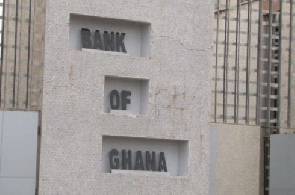| | Business 
[ 2017-02-28 ] 

BoG builds customer confidence with new consumer complaints guidelines
Consumers of financial services will from
henceforth be able to demand compliance from their
respective institutions they transact business
with.
It follows the completion of the Consumer Recourse
Mechanism Guidelines by the Bank of Ghana.
The guidelines among others allow consumers to
seek redress for complaints with the industry
regulator in a timely and independent manner.
The move is also expected to promote financial
stability and efficiency in the banking sector.
Commenting on the matter, Banking consultant, Nana
Otuo Acheampong told Citi Business News the
guidelines will position Ghana’s financial
sector at par with international standards.
“The guidelines will help us to identify unfair
practices and enable consumers to have some
confidence within the framework of the services
they are engaging…It is a very expensive set of
rules that have been developed and they can only
go to inure to the benefit of consumers of
financial services.”
The Consumer Recourse Mechanism Guidelines also
operates in consonance with Section 3 (2) (d) and
Section 92 (2) (a) (xi) of the Banks and
Specialised Deposit-Taking Institutions Act, 2016
(Act 930).
The law encapsulates an array of financial
institutions other than banks.
Nana Otuo Acheampong was also optimistic the
extension of the guidelines to include more
financial institutions will deepen confidence in
the sector.
“For the first time, the guidelines go further
than the Banking and Specialised money taking to
include some non-deposit credit institutions such
as credit unions as well as mobile money
operators.”
Per the guidelines, defaulting institutions are
liable to an administrative fine of not more than
five thousand penalty units, and in the case of a
continued breach, an additional fine of not more
than fifty penalty units for each day the breach
continues.
This translates into a charge of sixty thousand
cedis and a daily penalty rate of six hundred
cedis respectively.
Though he describes that as commendable, Nana Otuo
Acheampong however urged the central bank to
provide clarity on specific beneficiaries of such
fines.
“They do not tell us who gets the sixty thousand
whether it solely goes to the regulator or it will
shared with the victim,” he stated.
“The imposition is similar to what pertains in
the UK where the Ombudsman could levy a fine and
that will be given to the victim. This could be as
high as £100,000.” Source - citibsinessnews.com

... go Back | |




